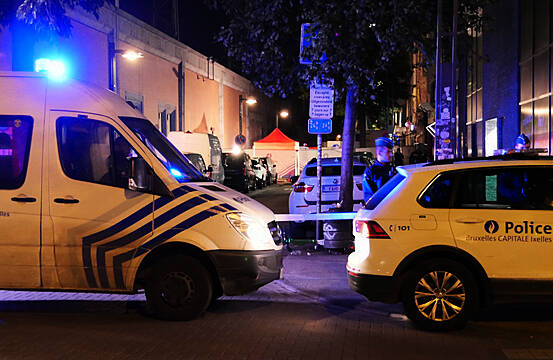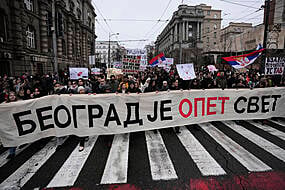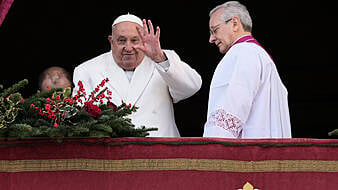A lone attacker who killed one police officer and hurt another in a Brussels stabbing was on a list of potential extremists, officials said.
The suspect, born in 1990 and named as Yassine M, went to a police station early on Thursday to express his hatred for officers but could not be arrested before he launched his attack on two officers that evening.
“The man was on the list of Ocad,” said Eric Van Der Sypt, a spokesman for the federal prosecutor’s office, referring to the Belgian organisation which assesses terror threats in the nation.
The suspect, who had served six years in prison from 2013-19, made “unhinged remarks” during his talk with officers hours before the attack, Brussels prosecutor Sarah Durant said.
Because he voluntarily asked for psychological help, he was not arrested and instead sent to a hospital – which he left soon after.
After the stabbings, the suspect was almost immediately shot by another police official called to the scene.

Wounded, he was taken to a hospital.
Mr Van Der Sypt said the attacker shouted “Allahu akbar”, the Arabic phrase for “God is great”, during the attack, which happened at about 7.15pm on Thursday around the usually busy Nord station.
On Friday, he faced charges of “murder and attempted murder within a terrorist context”, Mr Van Der Sypt added.
Belgian authorities kept the overall terrorist threat level at two out of a possible four, meaning the risk of an attack is still “medium”.
Prime Minister Alexander De Croo posted a message of condolence to the family and friends of the dead officer.

“Our police officers risk their lives every day to ensure the safety of our citizens,” he said.
“Today’s tragedy demonstrates this once again.”
Interior minister Annelies Verlinden said she was in contact with the Brussels mayor, police chief and security services to co-ordinate a response to the attack.
“Such violence against our people is unacceptable,” she said.
Authorities came under immediate criticism for not arresting the suspect when he made his initial threats to the police early on Thursday, but Ms Durant said procedures stipulate that he had to be taken by police to a hospital since he had asked for psychological help himself.
“Police remained there until hospital staff took over,” she said.
A few hours later, when police checked on his whereabouts, “it appears that the person had left the hospital”.
The attack touched a nerve in a nation hit by several terror attacks in the past decade, including suicide bombings in 2016 which killed 32 people and injured hundreds more in the Brussels subway and airport.







